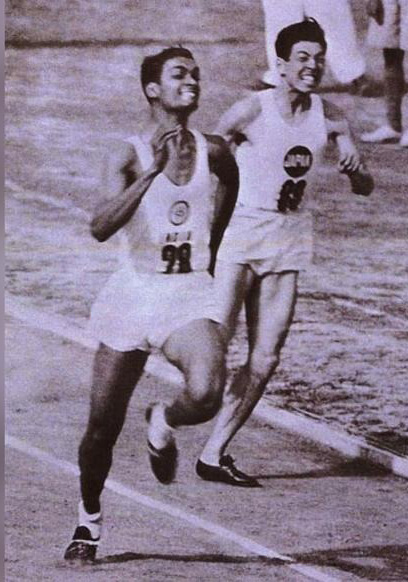Remembering pioneering sprint stars Lavy Pinto and Violet Peters

Two of independent India’s earliest sprint stars passed this year. Lavy Pinto and Violet Peters, who dominated their events in the 1950s, represented India with distinction, picked up Asian Games gold medals, died in distant lands – Chicago in the United States of America and Melbourne in Australia. They will always be remembered in Indian sports circles as pioneers.
Born in Nairobi in Kenya, then a British Colony, on October 23, 1929, Lavinho Thomas Pinto moved to Bombay and emerged as a promising athlete when studying in St. Xavier’s School and College. Trained by Benson Proudfoot, he was 20 when he won the sprint double in the Bombay State Athletics Meet and started dominating the national scene the following year.
In the 14th National Games in New Delhi, he set the 200m mark at 21.8 seconds in the heats before improving it to 21.7 seconds in the final. He continued to win the sprints in Bombay (Mumbai) in 1950, Ludhiana in 1951, Madras (Chennai) in 1952, Jabalpur in 1953 when he clocked his career best time of 10.6 seconds in the 100m and Calcutta (Kolkata) in 1955. He withdrew from the 200m race in Madras owing to a pulled muscle.
In Patiala in 1956, he came up with a 21.5 second 200m before he quit the track at just 27 years of age, but he was already a hero in India. For, he emerged fastest man in Asia with victories in the 100m and 200m in 10.8 and 22 seconds respectively in the inaugural Asian Games in 1951 and helped India finish with 10 gold, only one fewer than Japan.
Had it not been for a muscle pull in the wake of the 100m victory, he could well have anchored India to gold in the 4x100m relay as well, but he was unable to bridge the lead that the Japanese had opened up after three legs. Along with Alfred Shamin, M Gabriel and Ram Swaroop, he was delighted to take silver, well ahead of the Philippines quartet.
In the Olympic Games in Helsinki the next year, Lavy Pinto was the captain of the Indian athletics team. He finished fourth in 10.7 seconds in the 100m semifinals and was just outside the top six who made it to the final. Similarly, he clocked 21.7 seconds in the 200m semifinals. He clocked 21.6 seconds in the first and second round heats for his personal best.
In many ways, he was the pioneer, having spent a couple of months in London, training with the renowned Austrian-born coach Franz Stampfl at the London Athletic Club. By all accounts, he was a slow starter, but his endurance was such that he seemed to be able to accelerate even when the others were slowing down.
Later, he would have keen competition with Summa Navaratnam of Ceylon and Abdul Khaliq of Pakistan. He retired from competitive athletics in 1956 after the Indo-Pak dual meet in Delhi, focused on his career with the Tatas in the Taj Hotel and Air India before moving to the United States of America in 1969. He passed in Chicago on February 15, 2020.
The year also saw the passing of Violet Peters, who was among the first Indian women to win an Asian Games gold medal as part of the 4x100m team in 1954 and won bronze in 1958. A hockey and basketball player as well, representing her State in the National championships, she represented Maharashtra in 18 successive all India athletics championships.
Initially coached by Leslie Woodcock and then by Kal Pardiwalla and Ulal Rao, her specialty was the sprint hurdles event and she set four National records in the event. In the National Hockey Championships in Pune in 1965, she scored 12 goals to emerge top-scorer. She migrated to Australia in her later years and passed in Melbourne in July 2020.






